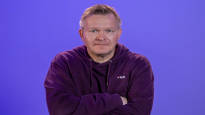Budapest, which was organizing its first World Cup, made dark Finnish history in 1966. Even then, it was the media’s fault, writes Pekka Holopainen.
Pekka Holopainen Sports journalist
21.8. 18:00•Updated 21.8. 18:10
A week and a half had passed since the javelin final of the European Championships in Budapest in September 1966, when Finland met Sweden in the track and field match at the Olympic Stadium. However, feelings were still hot.
I drive the big stars Pauli Nevala and Jorma Kinnunen challenged Ilta-Sanomi’s well-known journalist to a serious development discussion in the arena of the stadium.
– There was no direct physical contact, at least far away, who has seen it, finished 8th in the long jump at the European Championships Pertti Pousi recalls 57 years later.
It was the media’s fault then that Ilta-Sanomat had reported that during the European Championships the throwers went, so to speak, overnight.
However, in September 1966, the whole of Finnish athletics wandered in the night, which was then treated at the Olympic Stadium, among other things, as described above.
Crushing pressures
For the first time in the capital of Hungary, which is currently hosting the World Championships, Finland was left without a prestigious medal in athletics during the entire period in which it had been possible to participate in those medals at all.
The closest to a medal, in fourth place, was precisely Nevala, who, as the reigning Olympic champion in the javelin throw, had felt the pressure crushingly hard.
Although athletics is still a very popular activity in Finland in terms of media consumption figures, paying spectators and fan figures, in 1966 the world looked very different.
Missing out on medals was a downright national shock. It had come close a few times in the recent past, but at least one medal had always been achieved.
No tomato rain
In the same summer, the Italian national football team returned home from the World Cup literally in tomato rain after losing to North Korea in England. After all, it didn’t go that far in cool and expensive-tomato Finland; the hand silently clenched into a fist in the pocket.
The future CEO of Veikkaus and chairman of the Olympic Committee Risto Nieminen followed the Games as a 15-year-old sprint junior. He remembers well the depression after the European Championships.
– Finland was still practically a country of two sports: athletics in the summer, skiing in the winter. The rise of team sports was ahead. Countless people remembered vividly Paavo Nurmen. It had been 30 years since the Berlin Olympic Games, which were brilliant for Finland. It is 20 years less than the great years of the 1970s now, Nieminen explains.
Defeat taught
It is said that a hard loss teaches more than success. The sports association started its new chairman Jukka Uunilan under the leadership builds a new rise of the traditional sport, which culminated in 10 EC medals in 1974 in Rome. All means were used.
A year after the Budapest stomach upset, Uunila spoke to Finland with a New Zealand running coach of Arthur Lydiardwhich is symbolized too much by the huge success of the weak run of the 1960s, i.e. endurance running, in the 1970s.
After the darkly historic European Championships in Budapest, Finland remained at the medal level for no less than 27 prestigious competitions in a row. 17 of these at one time included the world’s track and field elite at the Olympic or World Cup level.
When there were no medals from the 2003 World Championships in Paris, it was by no means the most bitter national setback of that sporting year. The crushing defeat to Sweden in the spring World Cup remained like that. The world and meanings had irreversibly changed in 37 years.
Strong symbolism
After Paris, Finland has been included in the medal table 11 times, 8 times outside. The sport’s popularity has remained steadfast.
In sports, symbolism is often sought even where it does not exist without greatly stretching the imagination. In 2024, you won’t need a headlamp to find it. The Olympic Games are organized by Paris, the European Championships are organized by Rome: the extremes of the history of Finnish athletics.
Now the truth can already be found somewhere in between.
Pekka Holopainen
The author is a columnist based in Pori and the only sports reporter who has been selected as Journalist of the Year in Finland.
What thoughts did the story evoke? You can discuss the topic until Tuesday, August 22. until 11 p.m. Tunnus is required for commenting.
